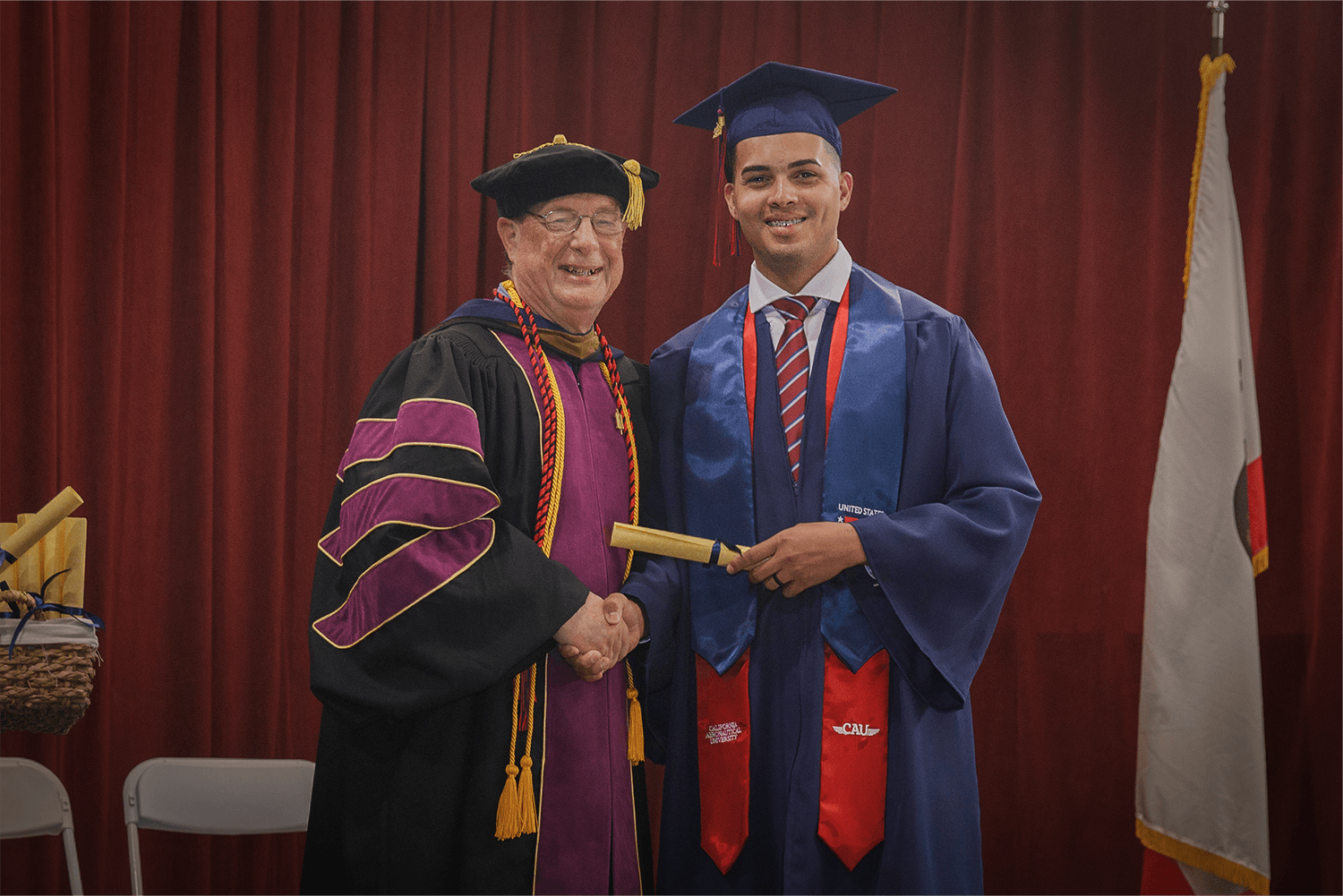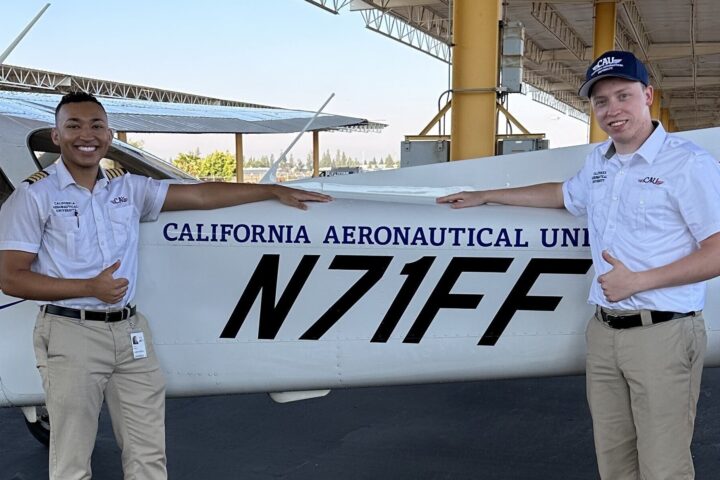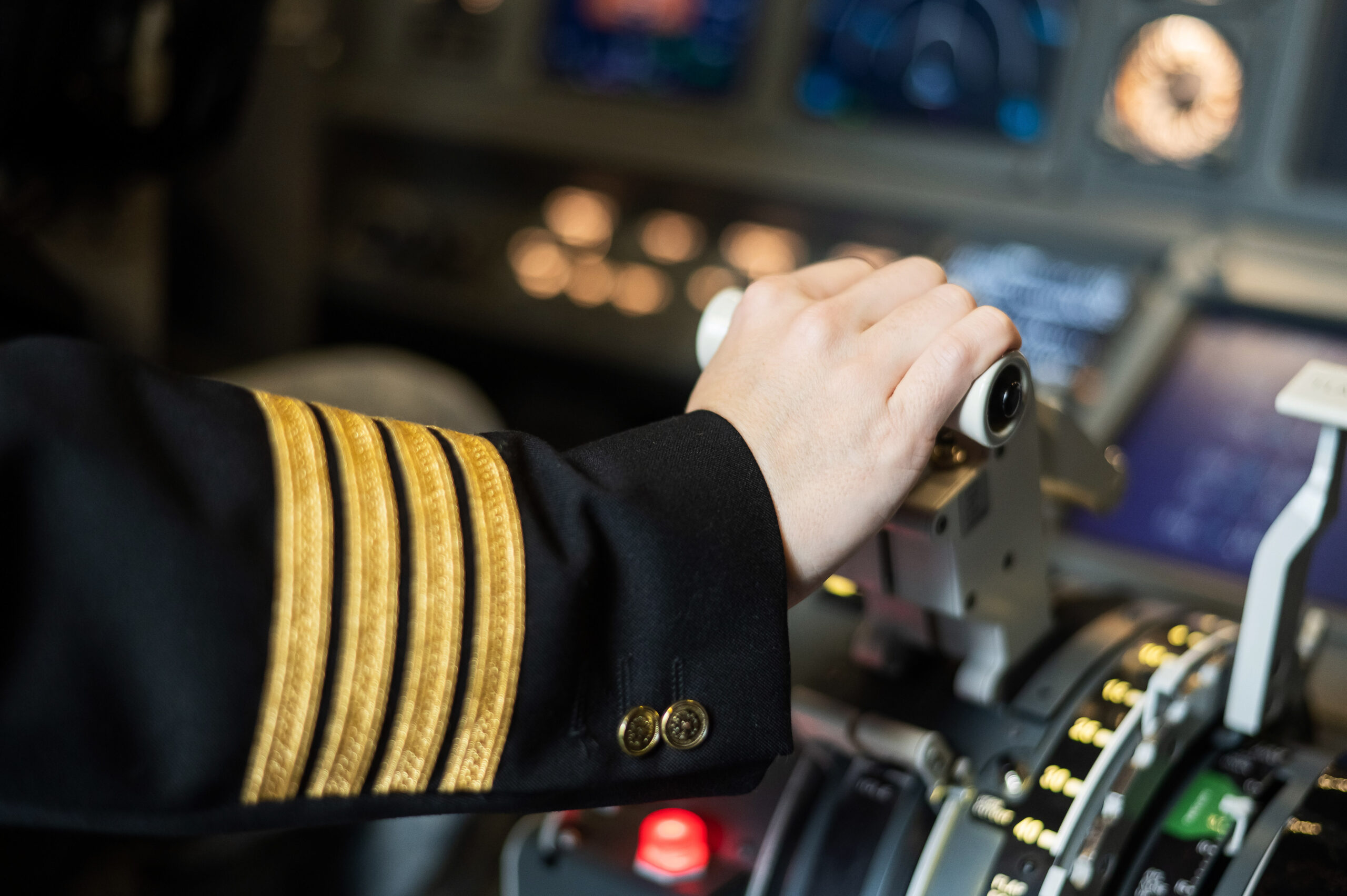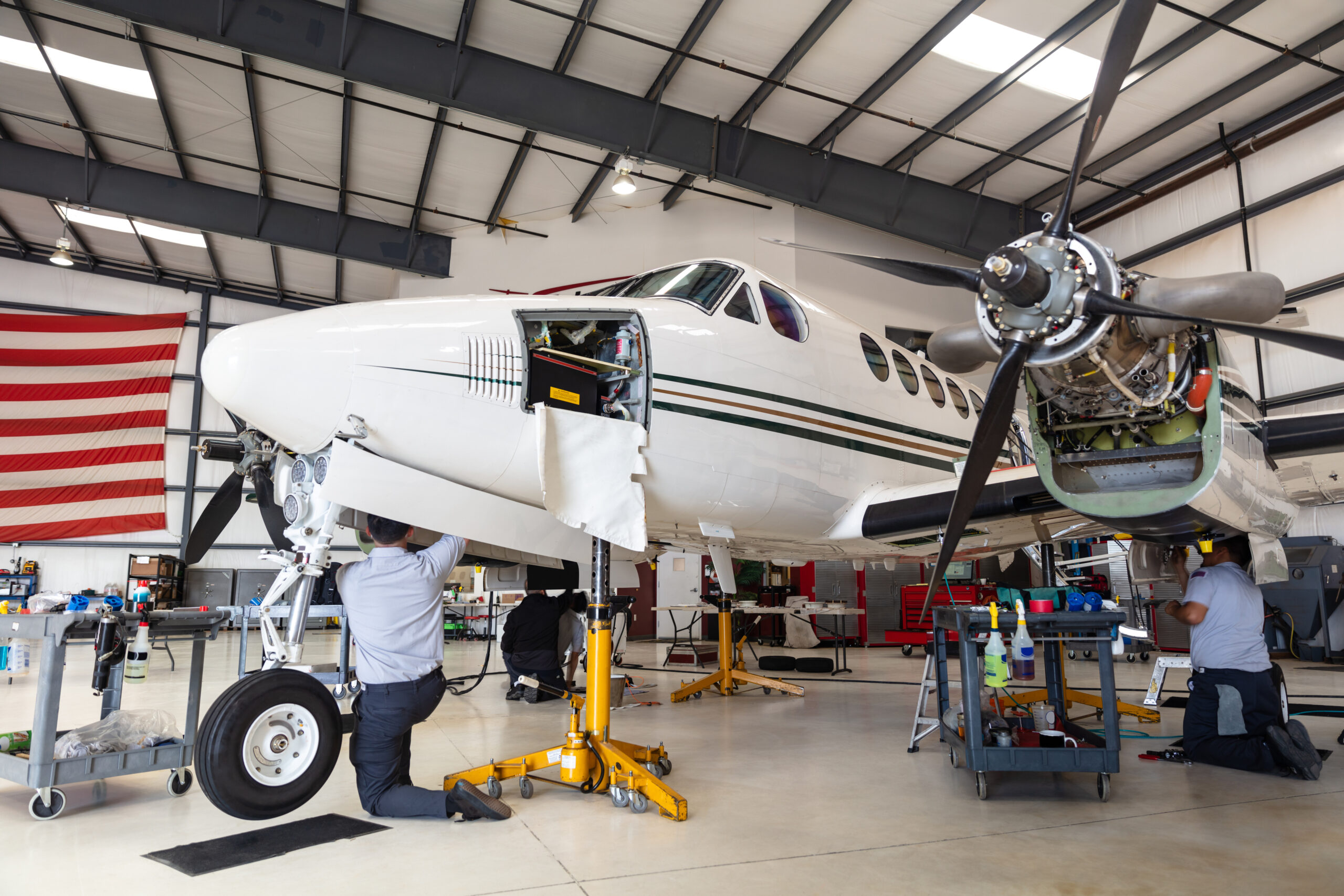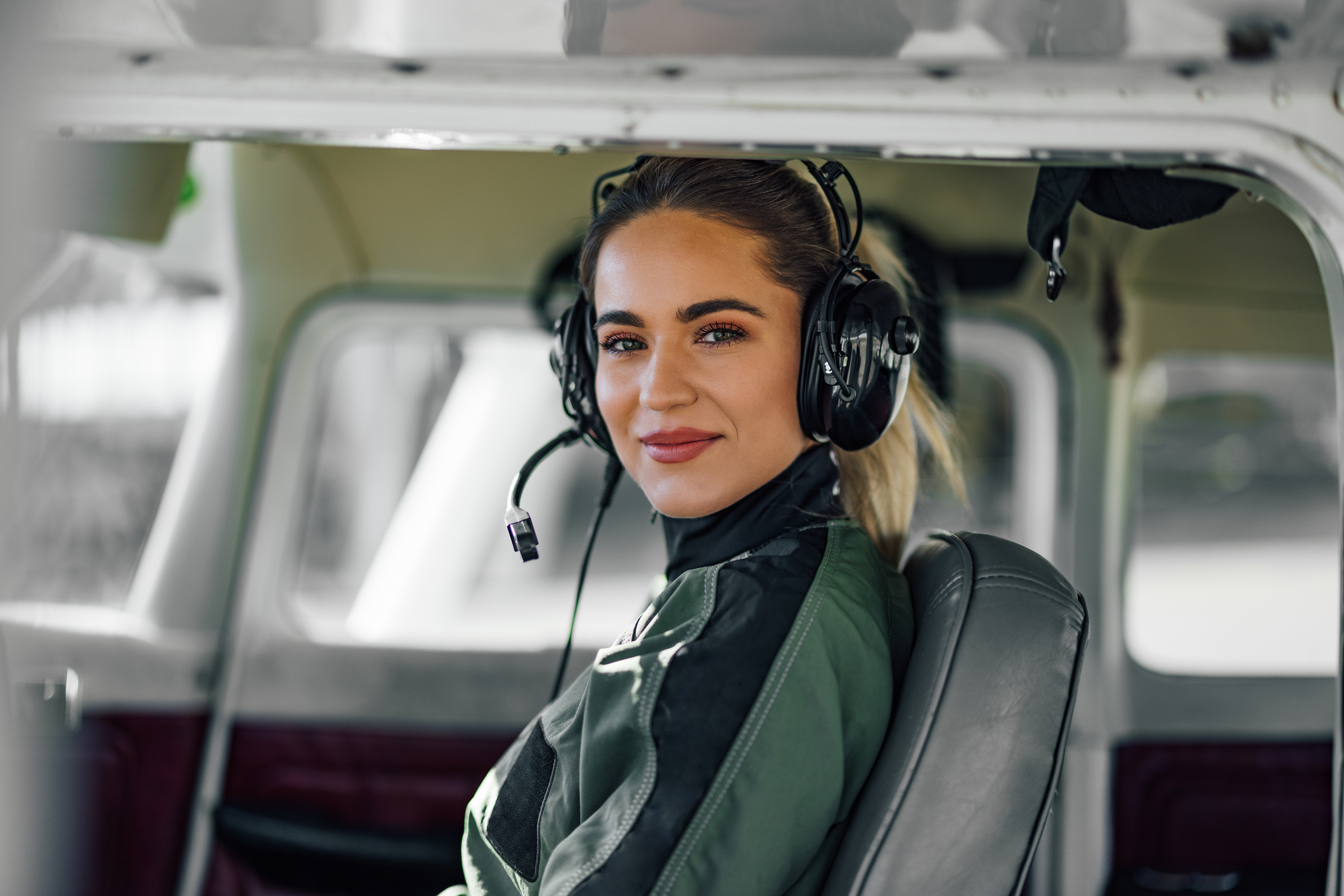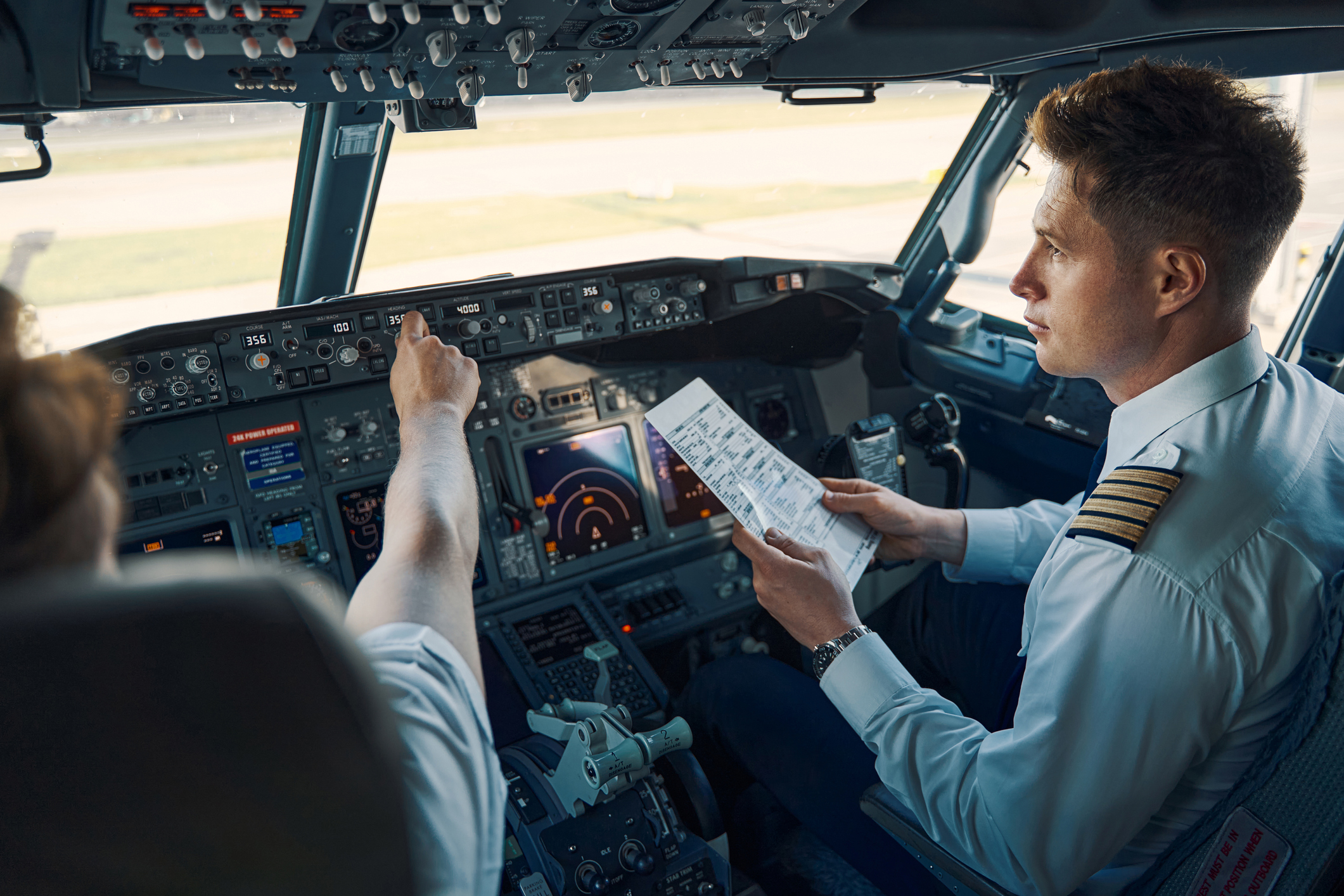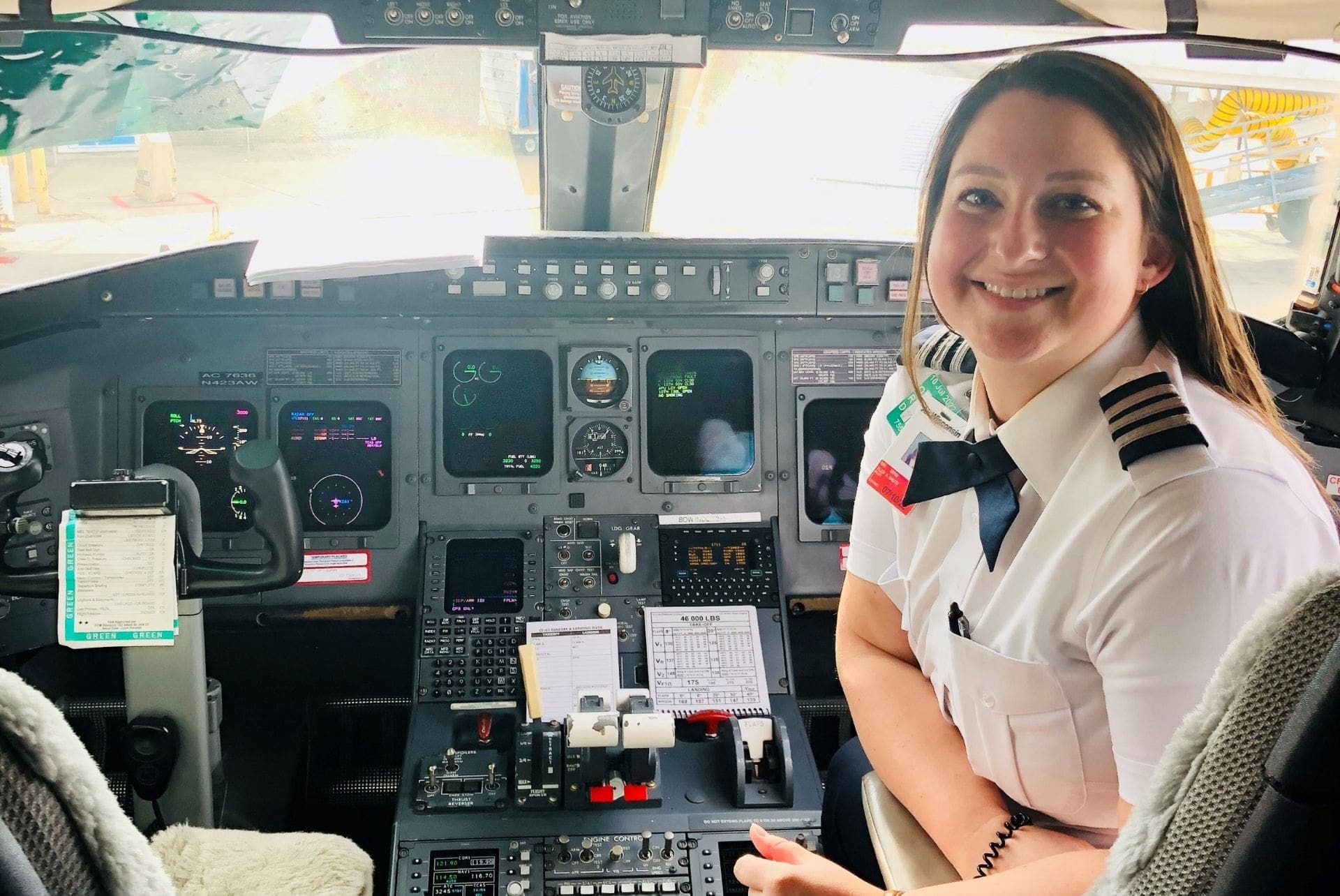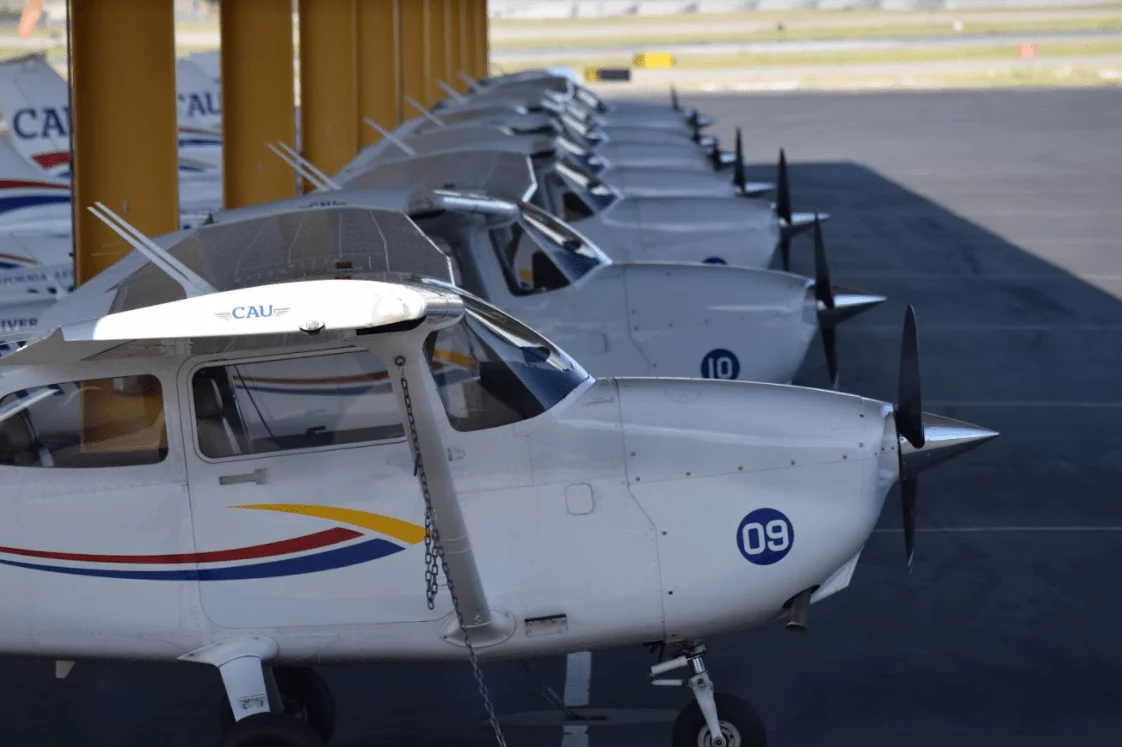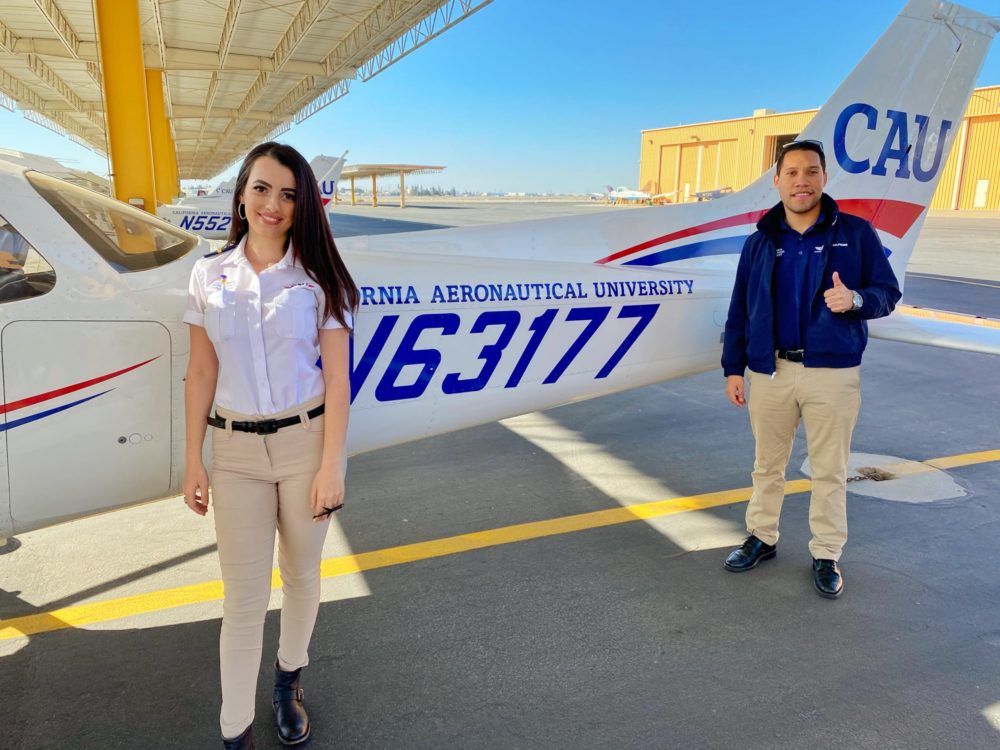One of the most asked questions from people who want to become pilots is “do I need a degree to be a pilot?”
The Federal Bureau of Labor Statistics states that “airline pilots typically need a bachelor’s degree in any field [while] commercial pilots typically complete flight training, and some employers require or prefer that they have a degree.” However, the Federal Aviation Administration (FAA) does not require a degree of any kind to become an airline pilot or a commercial pilot. So, why does the Federal Bureau state that pilots typically need one?
In this post, we’ll break down the history of pilot education requirements, why they have changed, how they may change in the future, and how you can better prepare yourself to be competitive in the commercial and airline career paths.
Pilot Education Requirements
While there is no federal mandate for a college degree for pilots, it can be required by the company hiring the pilots. In addition, having a degree can be a way to stand out as a competitive applicant, even when a degree is not required.
Let’s start by reviewing the current training and education requirements to become a airline pilot or commercial pilot. All commercial pilots go through a series of FAA-required certificates and ratings to become qualified, either for fixed wing aircraft or rotorcraft:
- Private Pilot Certificate
- Instrument Rating
- Commercial Pilot Certificate
- High-Performance Endorsement (to fly aircraft categorized as high performance)
- Multi-Engine Rating
- Aircraft-specific Type Ratings
Airline pilots must also obtain an Airline Transport Certificate and most of the time, an aircraft type rating specific to the aircraft they fly.
Beyond the above certificates and ratings to become a commercial pilot, some pilot jobs will require additional training, which can include additional FAA certificates and ratings and experience in specific aircraft types. These might include:
- Glider Endorsement or Rating
- Floatplane Rating
- Tailwheel Endorsement
- High-Altitude Endorsement
- Certified Flight Instructor Certificate
- Ground Instructor Certificate
- Skiplane Experience
Finally, certain pilot career paths might require a pilot to have additional knowledge, skills, and experience, like an associate or bachelor’s degree. Sometimes the requirement can be for any degree, and sometimes a specific degree field might be required.
Test pilots, for example, are often required to have an engineering degree along with flight experience. Airline pilot hiring standards, where a degree is required, often allow for a variety of degrees not associated with aviation, although degrees in aviation-related career fields obviously helpful candidates compete at a higher level.
Benefits of an Aviation Degree
An aviation degree from a FAA-approved institution is beneficial in many ways. These schools are held to higher standards, are audited by the FAA, and come with competitive advantages, lower hour requirements, and faster training scenarios.
1. Structured Training & FAA Oversight
Getting an aviation degree while accomplishing your flight training comes with the benefit of a solid, FAA-approved training program. These programs must prove to the FAA that they are sustainable, efficient, and productive.
These training programs, which fall under the Federal Aviation Regulations (FAR) Part 141, must be set up in a way that allows for students to progress through training efficiently. The curriculum and instruction methods are reviewed by the FAA, and instructors, training managers, and check airman must follow strict procedures.
Because of the standardization and certainty of the programs, students who go through these Part 141 collegiate flight training programs are allowed reduced hour requirements for some certificates.
2. Reduced Flight Hour Requirements for ATP Certification
Graduates of an approved aviation college can obtain their commercial pilot certificate and Restricted Airline Transport Pilot certificate with fewer hours than others.
Typically, commercial pilot applicants must have 250 hours in varying categories. In a collegiate Part 141 program, these candidates are allowed to apply for a commercial pilot certificate with about 190 hours instead, allowing them to progress through training a bit more quickly than others.
Perhaps the larger benefit is with the reduced hours allowed for the Restricted Airline Transport Pilot certificate. A regular ATP requires an applicant to have 1500 hours. An aviation college graduate with the required flight certificates can apply for a Restricted ATP (R-ATP) with 1000 hours (bachelor’s degree) or 1250 hours (associate’s degree).
3. Career Versatility & Advancement
Having a college degree can help you get a flying job, but it can also help you get any job at all! A college degree is always a good thing to have if a flying job doesn’t work out or if the economy is in a slump with little hiring. Or perhaps you want to advance your career and go into a management or executive job. A degree will benefit you regardless of which career path you take.
4. Competitive Advantage
The aviation industry ebbs and flows with the economy, and sometimes there’s a pilot shortage while other times, hiring is slow. During past times of recessions or slow economic growth, airline jobs were very competitive, and a bachelor’s degree was required to apply for those jobs. In periods of growth, this requirement was relaxed and many airlines hired pilots without college degrees. Regardless, having a college degree even when airlines don’t require them sets you above the rest of the applicants, and provides that competitive advantage over the many other pilots in the application pool.
5. Access to Financial Aid & Scholarships
While getting a college degree might seem like an extra step during times when a degree is not required, there’s another reason one might want to obtain an aviation degree: Financial Aid.
Government financial aid in the form of student loans or grants is a benefit offered to degree-seeking students at an accredited college. These low-interest loans are a great option for those trying to fund flight training.
Outside of a collegiate program, flight training loans are very high interest and difficult to be approved for.
In addition, colleges and universities often offer their enrolled students scholarship packages- yet another reason to consider getting a college degree alongside your flight training.
6. More Efficient Flight Training & Progress Tracking
The FAA demands that approved flight schools create a consistent and efficient path for students to complete flight training. This includes consistent course offerings, available flight instructors and aircraft, and a progression plan for students. These part 141 training requirements are often not offered or practiced at the typical flight school.
7. Better Networking & Career Opportunities
A collegiate flight training program can also provide additional opportunities that other flight schools don’t, including partnerships with airlines, internship opportunities, career prep classes, study abroad programs, and more. These advantages are all part of the college career path and can be very valuable when it comes to defining your future.
What Does a Degree Demonstrate to Employers?
When employers look for pilots, they are looking for specific pilot skills and abilities, of course, but they’re also searching for employees who will contribute positively to the company’s future, whether that’s in leadership roles, skilled jobs, or just being a good teammate.
1. Academic and Technical Knowledge
Of course, the first and foremost requirement for pilots is to have the required flight training. Collegiate programs go one step further and offer additional academic courses related to flight training that most non-collegiate pilots don’t get, and that benefit you as a pilot. These courses may include in-depth study on weather, aviation safety, advanced navigation, and aircraft systems.
2. Critical Thinking and Problem-Solving Skills
A degree in anything tells employers that you spent four years studying and mastering complex material, solving problems in class and outside of class, and using life skills to balance coursework, flight training, and your everyday life. These are skills that employers notice.
3. Discipline and Commitment
Completing a degree program alongside flight training requires discipline and commitment. Both pursuits require focus, determination, good study skills, resilience, and the commitment to keep going, even when things are challenging.
4. Communication and Teamwork
College is a large lesson in communication and teamwork. Surrounded by peers, instructors, professors, and many others, a student is required to use communication and teamwork skills to succeed in college and during flight training. Employers know that the time you spend in college is time spent mastering these skills.
5. Leadership and Professionalism
Employers are always looking for leadership and professionalism, especially amongst pilots. An aircraft captain must exude both leadership and professionalism to continue to create a safe dynamic and lead others to a culture of safe, efficient operations. College is a perfect place to gain leadership experience, with opportunities to lead collegiate clubs or organizations, take part in leadership courses and otherwise practice leadership and professionalism as part of a professional flight training program.
Ready to soar in your aviation career?
